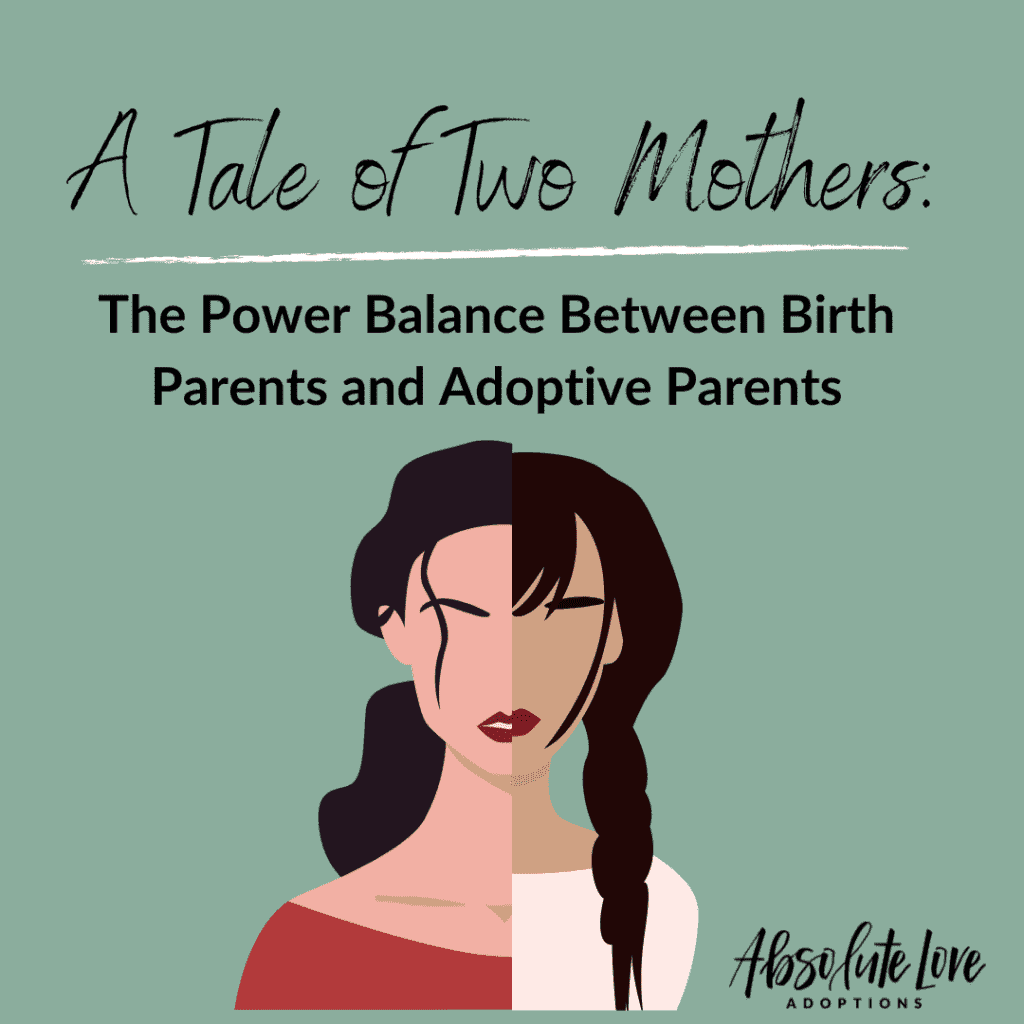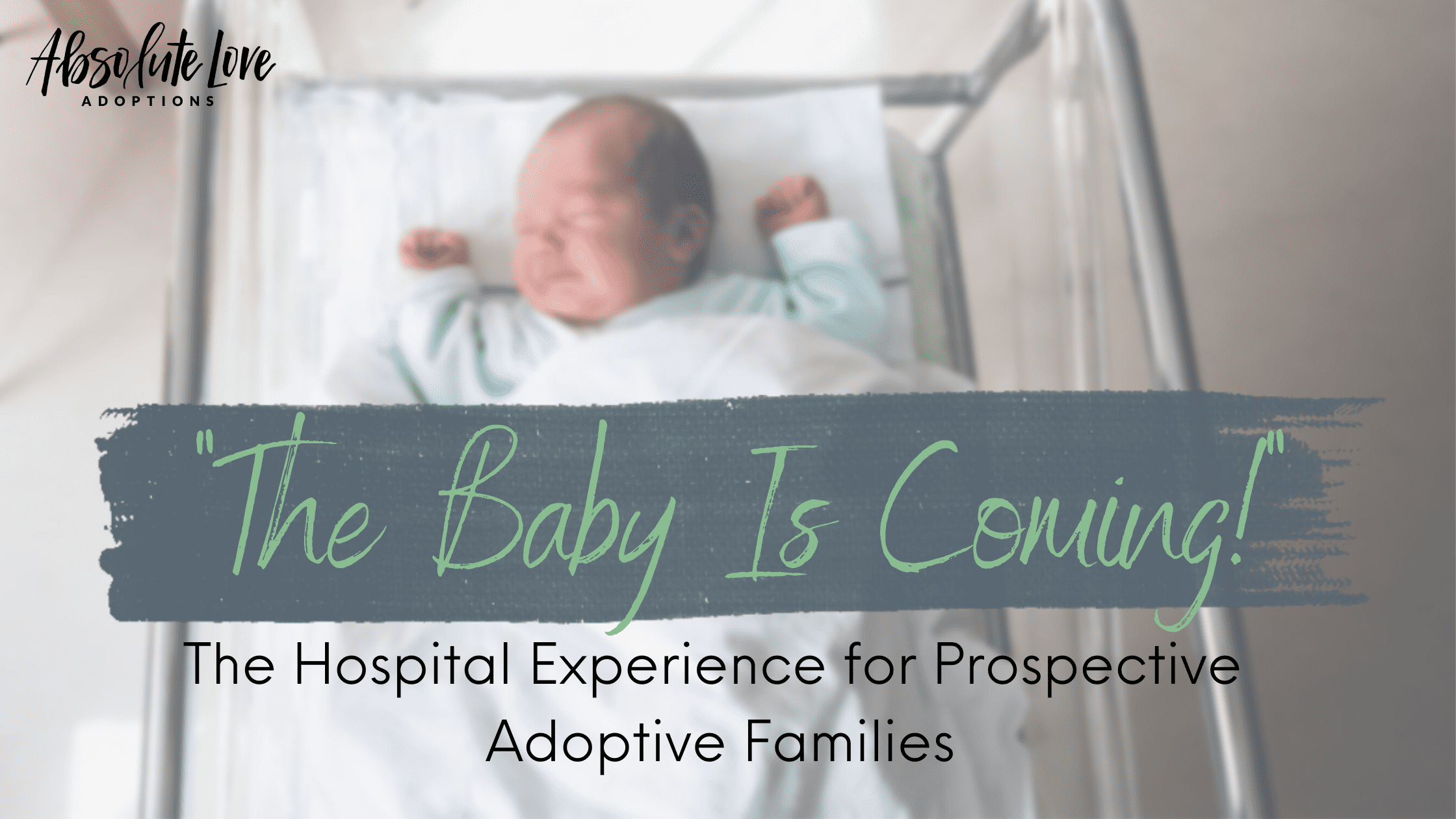The Baby Is Coming! The Hospital Experience For Prospective Families.
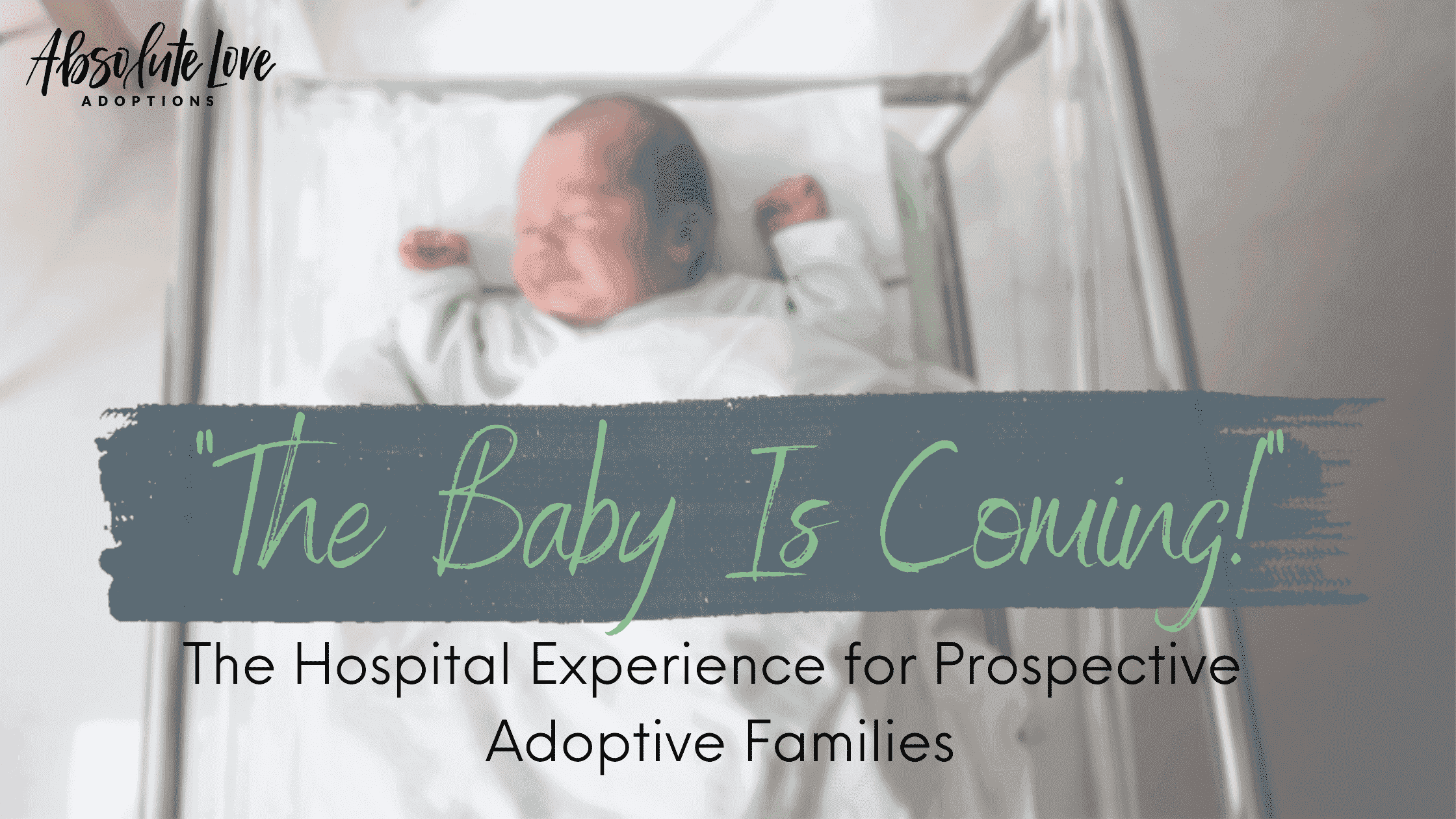
Preparing for the hospital experience is one of the most anxiety provoking tasks for prospective adoptive parents. While there are many generalities of this process, there are also many, many variables that color how this experience will look for you. This includes the specifics of your match and relationship, policies and experience of the chosen hospital and specific staff people involved, and the engagement level of your adoption agency or professional.
While we can’t account for every situational variable that might arise, we can give you the basics of what to expect and how to prepare so that you can show up well for this momentous occasion full of joy, sadness and so much anticipation from everyone involved.
When will you go to the hospital?
Generally speaking, an expectant mother will call the agency when she is in labor or has delivered. They will call you to come to the hospital if that is her wish. Some birthing mothers want adopting families present for the birth, or at the hospital during the stay. Others will request you come only when she, or the baby are ready to discharge from the hospital. Allow mom the space to decide these arrangements and communicate her wishes.
Delivery is unpredictable. For women having scheduled inductions or C-sections, this may allow more time for preparation, but a spontaneous delivery is just that: spontaneous. As Mom’s due date gets closer, have a “go bag” ready so that whenever you get the call, you are ready.
What do you need to bring?
Rest assured that most baby gear is unnecessary in the first few days/weeks with a newborn. You will not be allowed to leave the hospital with baby without a car seat that is properly installed, so ensure that this task is done ahead of time.
Other fairly helpful items include a side sleeper or bassinet, a stroller and a babywearing carrier, particularly if you are waiting out ICPC. The essentials for yourself like clothes, hygiene products, medications and identification documents are important to remember.
The hospital room stocks essentials like diapers, formula, binkies, hats, blankets and creams for baby. Once it is in your room, they cannot be reused. So bring a big diaper bag and plan to take the hospital stock with you when you leave.
Often babies are particular towards formula, nipples, diapers and creams, so please do not stock up on those products ahead of time as you may find the baby needs an alternate brand.
You can get what you need while awaiting permission to travel or awaiting consents, so don’t freak out if you don’t have all the baby gear you need.
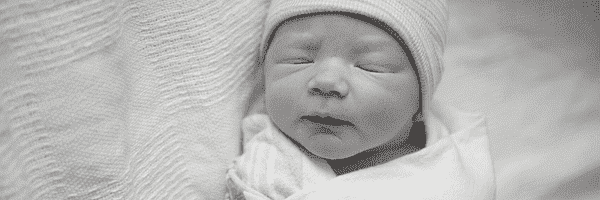
What Will It Be Like When You Arrive?
You’ll go to the hospital, where ideally a social worker will meet you. Check in, go to the nursing station and let them know you are the prospective adoptive parents of baby born to mom. They will know you are coming. They will ask for ID.
Either hospital staff or your agency social worker can get you set up somewhere, let you calm down, and then take you to meet mama and baby.
Remember to speak with Mom and Dad first as opposed to bee lining for the baby. Ensure they know you are there for them as much as for the baby. This is a great time to grab Mom and Dad some after delivery coffee, chocolate or a treat.
Where Do You Stay?
Sometimes hospitals will have a room set aside for you to “room in” with the baby and provide care, assuming the birth mom wishes this to happen. Other times you will need to stay in a hotel nearby. Scout the area for hotels, but don’t book one that isn’t refundable. If you are offered to stay at the hospital, please do. Maximize the opportunity to spend time with the birth family and get to know them.
Who will be there to support you?
If you are using a local agency, there will be an agency social worker there to support the birth family and prospective family. Most hospitals will have a social worker on staff that will assist with discharge paperwork the adoption agency will need.
Who takes care of the baby?
Sometimes Mom wants to spend the time in the hospital with her child, bonding and sharing space.
Read/Listen to Birth Mom Leah Outten’s blogs “Meant To Be Theirs” part 1, and “Goodbye For Now” Part 2 to see what this time was like for her.
Sometimes Mom asks the prospective adopting parents to provide the care. If this is the case, we encourage you to ask if she’d like to do the first caregiving tasks such as first diaper change, feed, bath and picking out the first outfit or the outfit baby will wear leaving the hospital. These are special moments for new parents. Offer her these moments first and give her a chance to say yes.
Do not assume anything, even if you’ve discussed the hospital plan with Mom beforehand. Leave her lots of space to make decisions in real time and care for her child in the hospital in whatever way she needs.
Remember that if she chooses adoption, this time together is all she has as a mother. Once she places, you have a lifetime with this child.
When are consents signed?
This depends on your state laws. In Pennsylvania, Mom can’t sign consents for at least 72 hours after birth. Assuming she is ready to sign at that time, we meet with a notary and sign consents. Sometimes Mom’s request more time to sign or there is a conflict with scheduling a notary/witnesses.
What does physical transfer of the baby look like?
If consents are not signed when Birth Mom discharges from the hospital, she typically signs custody paperwork allowing you to take physical care of baby until adoption consents are signed. You then leave with the baby. You should plan to stay in the area until consents are signed.
This placement of the child into your arms is a special time together. Ideally you and the birth family get together to share space and allow mom time and privacy to say goodbye to her child. Make it a point to offer a moment for her to connect before leaving to go home, especially if there is a period of time between birth and permission to travel.
Who keeps hospital mementos?
Some other opportunities to build connection and trust between you happens when deciding where the sentimental items go from baby’s hospital stay. This includes baby’s first hat, baby band, footprints, etc. When she leaves the hospital, ask if she’d like to keep them. You can always ask the staff to assist with creating a second set of footprints for you to take home with baby.

Can I give her gifts?
Please do. Treat her like any new mom you’d visit in the hospital. Don’t go overboard, but a nice gesture to congratulate her on giving birth is encouraged. She too deserves an opportunity to celebrate her strength and power having given birth. We recommend a SOLACE gift box, particularly the spa themed box as they are appropriate for any new mom and are not excessive.
Anther recommendation is a set of lap blankets: 1 for Mom to keep and 1 for baby to keep. You can then take photos of the baby to send to mom on their matching blankets. It is an easy way to help mom feel included even from afar.
Do not give gift cards or cash, and don’t go nuts with massive armloads of gifts.
What if she chooses to parent?
Congratulate her on making a difficult choice and for having the strength to assert her right to parent. Know that the choice isn’t about you at all. Offer to leave some of the baby gear you purchased behind for her as she probably does not have the things she needs to care for this child that you love and wanted to parent.
Remember that this is her child, and the pain you are feeling is real, but you must compartmentalize and deal with your grief and loss once you are not in moms space. She’ll need you to continue extending the same kindness and decency that you have been throughout this entire experience.
What else can I do before hand to prepare?
Do all of the education you can about how to care for a baby. Any new parent has to learn how to care for an infant. We highly recommend following New Parents Academy.
Offer to pay for a doula for her. Having support during birth is an empowering experience for a woman, and feeling loved goes a long way to set the tone for transition to parenthood, particularly for birth mothers. Medical insurance doesn’t typically pay for this, but please ask your agency to hire a doula. This may be the single most important expense you pay for!
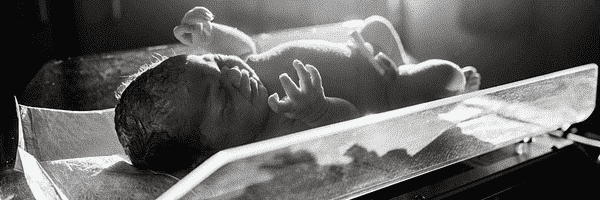
During the hospital experience, whatever that looks like for you, be present however the birth family needs you. Whether placement occurs or not, the birthing family will forever remember the kindness you showed during this vulnerable time. If you are asked to parent this child, your kindness will also be a highlight in this child’s story forever.
Let us notify you when our digital course "A Tale of two Mothers" is available!
